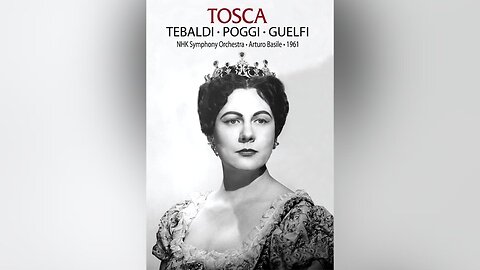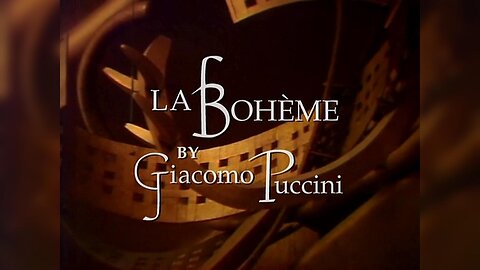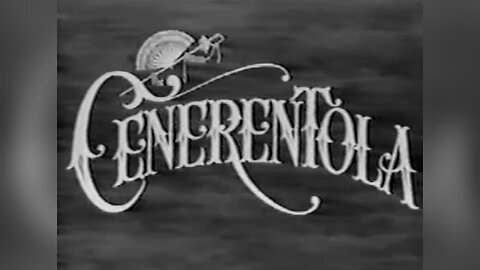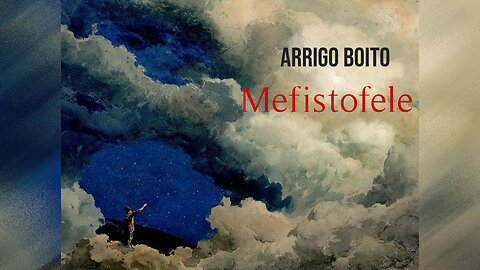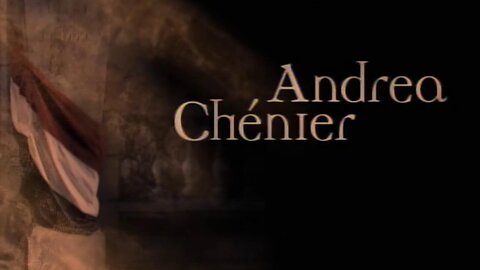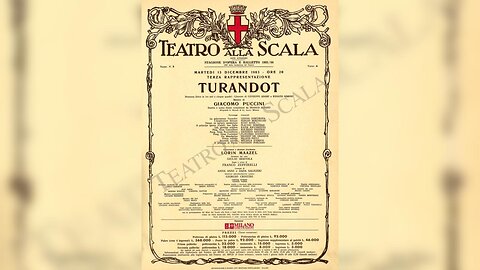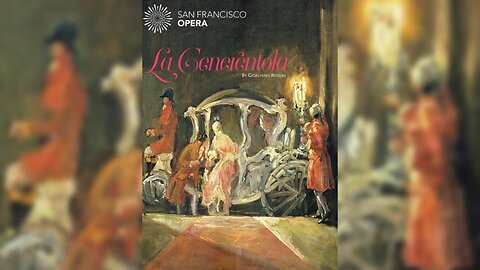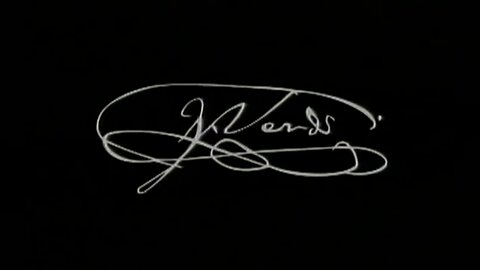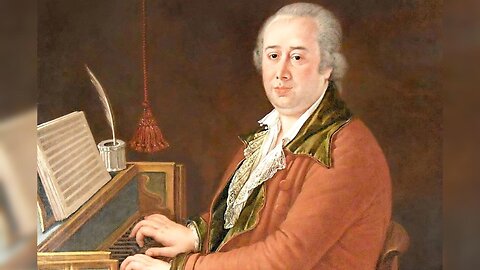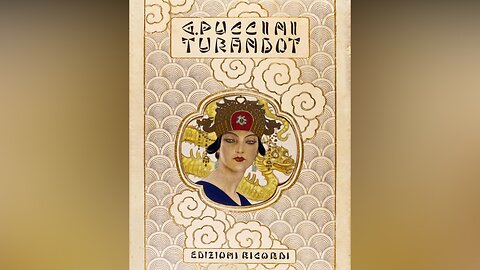
Italian Opera
78 videos
Updated 1 month ago
Italian Composers
-
Puccini: Turandot | Birgit Nilsson, Cecchele, Tucci - Prêtre (RAI 1969)
 Adaneth - Arts & LiteratureComposer: Giacomo Antonio Puccini Librettist: Giuseppe Adami, and Renato Simoni Premiere: 25 April 1926, Milan (La Scala) Language: Italian Subtitles: None Turandot Synopsis: https://www.opera-arias.com/puccini/turandot/synopsis/ Cast & Characters: La principessa Turandot - Birgit Nilsson Calaf - Gianfranco Cecchele Liu - Gabriella Tucci Ping - Claudio Strudthoff Pang - Mario Ferrara Pong - Carlo Franzini Timur - Boris Carmeli L'imperatore Altoum - Luigi Pontiggia Un mandarino - Franco Bordoni Prima ancella - Giannella Borelli Seconda Ancella - Fernanda Cadoni RAI Torino Orchestra & Chorus Conductor: Georges Prêtre Recorded in 1969 The opera is set in China and follows the Prince Calaf, who falls in love with the cold-hearted Princess Turandot. In order to win her hand in marriage, a suitor must solve three riddles, with a wrong answer resulting in his execution. Calaf passes the test, but Turandot refuses to marry him. He offers her a way out: if she is able to guess his name before dawn the next day, he will accept death. Puccini died in 1924, and his opera was left unfinished. The music was completed by Franco Alfano and premiered on 25 April 1926, almost a year and a half after Puccini's death. Turandot premiered at the La Scala opera house in Milan, Italy, on 25 April 1926, a year and five months after Puccini's death. Rosa Raisa played Turandot. Tenors Miguel Fleta and Franco Lo Giudice alternated in the role of Prince Calaf, with Fleta singing the role on opening night. It was conducted by Arturo Toscanini. In the middle of Act III, the orchestra stopped playing. Toscanini turned to the audience and announced, "Qui finisce l'opera, perché a questo punto il maestro è morto" ("Here the opera ends, because at this point the maestro died"). The curtain was then lowered. The second and subsequent performances of the 1926 La Scala season included Alfano's ending.26 views
Adaneth - Arts & LiteratureComposer: Giacomo Antonio Puccini Librettist: Giuseppe Adami, and Renato Simoni Premiere: 25 April 1926, Milan (La Scala) Language: Italian Subtitles: None Turandot Synopsis: https://www.opera-arias.com/puccini/turandot/synopsis/ Cast & Characters: La principessa Turandot - Birgit Nilsson Calaf - Gianfranco Cecchele Liu - Gabriella Tucci Ping - Claudio Strudthoff Pang - Mario Ferrara Pong - Carlo Franzini Timur - Boris Carmeli L'imperatore Altoum - Luigi Pontiggia Un mandarino - Franco Bordoni Prima ancella - Giannella Borelli Seconda Ancella - Fernanda Cadoni RAI Torino Orchestra & Chorus Conductor: Georges Prêtre Recorded in 1969 The opera is set in China and follows the Prince Calaf, who falls in love with the cold-hearted Princess Turandot. In order to win her hand in marriage, a suitor must solve three riddles, with a wrong answer resulting in his execution. Calaf passes the test, but Turandot refuses to marry him. He offers her a way out: if she is able to guess his name before dawn the next day, he will accept death. Puccini died in 1924, and his opera was left unfinished. The music was completed by Franco Alfano and premiered on 25 April 1926, almost a year and a half after Puccini's death. Turandot premiered at the La Scala opera house in Milan, Italy, on 25 April 1926, a year and five months after Puccini's death. Rosa Raisa played Turandot. Tenors Miguel Fleta and Franco Lo Giudice alternated in the role of Prince Calaf, with Fleta singing the role on opening night. It was conducted by Arturo Toscanini. In the middle of Act III, the orchestra stopped playing. Toscanini turned to the audience and announced, "Qui finisce l'opera, perché a questo punto il maestro è morto" ("Here the opera ends, because at this point the maestro died"). The curtain was then lowered. The second and subsequent performances of the 1926 La Scala season included Alfano's ending.26 views -
Puccini: Tosca | Tebaldi, Poggi, Guelfi - Basile (Tokyo 1961)
 Adaneth - Arts & LiteratureComposer: Giacomo Antonio Puccini Librettist: Giuseppe Giacosa, and Luigi Illica Premiere: 14 January 1900, Rome (Teatro Costanzi) Language: Italian Subtitles: Japanise Hardcoded Tosca Synopsis: https://www.opera-arias.com/puccini/tosca/synopsis/ Cast & Characters: Renata Tebaldi as Tosca Gianni Poggi as Cavaradossi Gian Giacomo Guelfi as Scarpia Silvano Pagliuca as Angelotti Antonio Pirino as Spoletta Giorgio Onesti as Sacristan Arturo La Porta as Sciarrone/Jailor Takako Kurimoto as Shepherd The NHK Symphony Orchestra Tokyo Broadcasting Chorus NHK Italian Opera Chorus Conductor: Arturo Basile Live performance, October 22, 1961 Tokyo Bunka Kaikan Tosca is an opera in three acts by Giacomo Puccini to an Italian libretto by Luigi Illica and Giuseppe Giacosa. It premiered at the Teatro Costanzi in Rome on 14 January 1900. The work, based on Victorien Sardou's 1887 French-language dramatic play, La Tosca, is a melodramatic piece set in Rome in June 1800, with the Kingdom of Naples's control of Rome threatened by Napoleon's invasion of Italy. It contains depictions of torture, murder, and suicide, as well as some of Puccini's best-known lyrical arias. Tosca premiered at a time of unrest in Rome, and its first performance was delayed for a day for fear of disturbances. Despite indifferent reviews from the critics, the opera was an immediate success with the public. The dramatic force of Tosca and its characters continues to fascinate both performers and audiences, and the work remains one of the most frequently performed operas. Many recordings of the work have been issued, both of studio and live performances.20 views
Adaneth - Arts & LiteratureComposer: Giacomo Antonio Puccini Librettist: Giuseppe Giacosa, and Luigi Illica Premiere: 14 January 1900, Rome (Teatro Costanzi) Language: Italian Subtitles: Japanise Hardcoded Tosca Synopsis: https://www.opera-arias.com/puccini/tosca/synopsis/ Cast & Characters: Renata Tebaldi as Tosca Gianni Poggi as Cavaradossi Gian Giacomo Guelfi as Scarpia Silvano Pagliuca as Angelotti Antonio Pirino as Spoletta Giorgio Onesti as Sacristan Arturo La Porta as Sciarrone/Jailor Takako Kurimoto as Shepherd The NHK Symphony Orchestra Tokyo Broadcasting Chorus NHK Italian Opera Chorus Conductor: Arturo Basile Live performance, October 22, 1961 Tokyo Bunka Kaikan Tosca is an opera in three acts by Giacomo Puccini to an Italian libretto by Luigi Illica and Giuseppe Giacosa. It premiered at the Teatro Costanzi in Rome on 14 January 1900. The work, based on Victorien Sardou's 1887 French-language dramatic play, La Tosca, is a melodramatic piece set in Rome in June 1800, with the Kingdom of Naples's control of Rome threatened by Napoleon's invasion of Italy. It contains depictions of torture, murder, and suicide, as well as some of Puccini's best-known lyrical arias. Tosca premiered at a time of unrest in Rome, and its first performance was delayed for a day for fear of disturbances. Despite indifferent reviews from the critics, the opera was an immediate success with the public. The dramatic force of Tosca and its characters continues to fascinate both performers and audiences, and the work remains one of the most frequently performed operas. Many recordings of the work have been issued, both of studio and live performances.20 views -
La Bohème | Scotto, Pavarotti, Wixell - Levine, Pizzi (MET 1977 - MULTISUB)
 Adaneth - Arts & LiteratureComposer: Giacomo Antonio Puccini Librettist: Giuseppe Giacosa, and Luigi Illica Premiere: 1 February 1896, Turin (Teatro Regio) Language: Italian Subtitles: Italian, English, German, French, Spanish (Click on CC for subtitles) La Bohème Synopsis: https://www.opera-arias.com/puccini/la-boh%C3%A8me/synopsis/ Cast & Characters: Renata Scotto as Mimi Luciano Pavarotti as Rodolfo Maralin Niska as Musetta Ingvar Wixell as Marcello Allan Monk as Schaunard Paul Plishka as Colline Italo Tajo as Benoit Andrea Velis as Alcindoro The Metropolitan Opera Orchestra and Chorus Conductor: James Levine Set and Costume Design: Pier Luigi Pizzi Production by Fabrizio Melano TV Director: Kirk Browning La bohème is an opera in four acts, by Giacomo Puccini to an Italian libretto by Luigi Illica and Giuseppe Giacosa, based on Scènes de la vie de bohème by Henri Murger. The story is set in Paris around 1830 and shows the Bohemian lifestyle (known in French as "la bohème") of a poor seamstress and her artist friends. The world premiere of La bohème was in Turin on 1 February 1896 at the Teatro Regio, conducted by the 28-year-old Arturo Toscanini. Since then, La bohème has become part of the standard Italian opera repertory and is one of the most frequently performed operas internationally. According to Operabase, it is the fourth most frequently performed opera worldwide. Puccini died in Brussels on 29 November 1924, and the news of his death reached Rome during a performance of La bohème. The opera was immediately stopped, and the orchestra played Chopin's Funeral March for the stunned audience. In 1946, 50 years after the opera's premiere, Toscanini conducted a commemorative performance of it on radio with the NBC Symphony Orchestra. A recording of the performance was later released by RCA Victor on vinyl record, tape and compact disc. It is the only recording ever made of a Puccini opera by its original conductor. As credited on its title page, the libretto of La bohème is based on Henri Murger's 1851 novel, Scènes de la vie de bohème, a collection of vignettes portraying young bohemians living in Paris in the 1840s. Although often called a novel, the book has no unified plot. Like the 1849 play drawn from the book by Murger and Théodore Barrière, the opera's libretto focuses on the relationship between Rodolfo and Mimì, ending with her death. Also like the play, the libretto combines two characters from the novel, Mimì and Francine, into the single character of Mimì. Much of the libretto is original. Major sections of acts two and three are the librettists' invention, with only a few passing references to incidents and characters in Murger. Most of acts one and four follow the book, piecing together episodes from various chapters. The final scenes in acts one and four—the scenes with Rodolfo and Mimì—resemble both the play and the book. The story of their meeting closely follows chapter 18 of the book, in which the two lovers living in the garret are not Rodolphe and Mimì at all, but rather Jacques and Francine. The story of Mimì's death in the opera draws from two different chapters in the book, one relating Francine's death and the other relating Mimì's.37 views 2 comments
Adaneth - Arts & LiteratureComposer: Giacomo Antonio Puccini Librettist: Giuseppe Giacosa, and Luigi Illica Premiere: 1 February 1896, Turin (Teatro Regio) Language: Italian Subtitles: Italian, English, German, French, Spanish (Click on CC for subtitles) La Bohème Synopsis: https://www.opera-arias.com/puccini/la-boh%C3%A8me/synopsis/ Cast & Characters: Renata Scotto as Mimi Luciano Pavarotti as Rodolfo Maralin Niska as Musetta Ingvar Wixell as Marcello Allan Monk as Schaunard Paul Plishka as Colline Italo Tajo as Benoit Andrea Velis as Alcindoro The Metropolitan Opera Orchestra and Chorus Conductor: James Levine Set and Costume Design: Pier Luigi Pizzi Production by Fabrizio Melano TV Director: Kirk Browning La bohème is an opera in four acts, by Giacomo Puccini to an Italian libretto by Luigi Illica and Giuseppe Giacosa, based on Scènes de la vie de bohème by Henri Murger. The story is set in Paris around 1830 and shows the Bohemian lifestyle (known in French as "la bohème") of a poor seamstress and her artist friends. The world premiere of La bohème was in Turin on 1 February 1896 at the Teatro Regio, conducted by the 28-year-old Arturo Toscanini. Since then, La bohème has become part of the standard Italian opera repertory and is one of the most frequently performed operas internationally. According to Operabase, it is the fourth most frequently performed opera worldwide. Puccini died in Brussels on 29 November 1924, and the news of his death reached Rome during a performance of La bohème. The opera was immediately stopped, and the orchestra played Chopin's Funeral March for the stunned audience. In 1946, 50 years after the opera's premiere, Toscanini conducted a commemorative performance of it on radio with the NBC Symphony Orchestra. A recording of the performance was later released by RCA Victor on vinyl record, tape and compact disc. It is the only recording ever made of a Puccini opera by its original conductor. As credited on its title page, the libretto of La bohème is based on Henri Murger's 1851 novel, Scènes de la vie de bohème, a collection of vignettes portraying young bohemians living in Paris in the 1840s. Although often called a novel, the book has no unified plot. Like the 1849 play drawn from the book by Murger and Théodore Barrière, the opera's libretto focuses on the relationship between Rodolfo and Mimì, ending with her death. Also like the play, the libretto combines two characters from the novel, Mimì and Francine, into the single character of Mimì. Much of the libretto is original. Major sections of acts two and three are the librettists' invention, with only a few passing references to incidents and characters in Murger. Most of acts one and four follow the book, piecing together episodes from various chapters. The final scenes in acts one and four—the scenes with Rodolfo and Mimì—resemble both the play and the book. The story of their meeting closely follows chapter 18 of the book, in which the two lovers living in the garret are not Rodolphe and Mimì at all, but rather Jacques and Francine. The story of Mimì's death in the opera draws from two different chapters in the book, one relating Francine's death and the other relating Mimì's.37 views 2 comments -
Rossini: La Cenerentola | Afro Poli, Fedora Barbieri - Oliviero de Fabritiis (Opera Film 1949)
 Adaneth - Arts & LiteratureCinderella is a 1949 Opera Film directed by Fernando Cerchio. It is a film adaptation of Gioachino Rossini's opera of the same name, which in turn was inspired by Charles Perrault's fairy tale. The film's interiors were shot at the Royal Palace of Turin, and the exteriors were filmed at the castles of Stupinigi and Tolcinasco, and at the Royal Palace of Monza. Fernando Cerchio's "Cenerentola" is a good representation of Rossini's opera, almost in its entirety, with all singing and no spoken parts. Cast: Lori Randi (voice of Fedora Barbieri), Gino Del Signore, Afro Poli, Vito De Taranto, Franca Tamantini (Tisbe, voice of Fernanda Cadoni Azzolini), Fiorella Carmen Forti (Clorinda), Enrico Formichi (Alidoro), Giuliana Rivera, Tina Zucchi. Orchestra and Chorus of the Rome Opera, conducted by Oliviero de Fabritiis; choirmaster Achille Consoli.45 views
Adaneth - Arts & LiteratureCinderella is a 1949 Opera Film directed by Fernando Cerchio. It is a film adaptation of Gioachino Rossini's opera of the same name, which in turn was inspired by Charles Perrault's fairy tale. The film's interiors were shot at the Royal Palace of Turin, and the exteriors were filmed at the castles of Stupinigi and Tolcinasco, and at the Royal Palace of Monza. Fernando Cerchio's "Cenerentola" is a good representation of Rossini's opera, almost in its entirety, with all singing and no spoken parts. Cast: Lori Randi (voice of Fedora Barbieri), Gino Del Signore, Afro Poli, Vito De Taranto, Franca Tamantini (Tisbe, voice of Fernanda Cadoni Azzolini), Fiorella Carmen Forti (Clorinda), Enrico Formichi (Alidoro), Giuliana Rivera, Tina Zucchi. Orchestra and Chorus of the Rome Opera, conducted by Oliviero de Fabritiis; choirmaster Achille Consoli.45 views -
Boito: Mefistofele | Caballé, Giaiotti, Ordoñez - Collado (Liceu 1987-SPA SUB)
 Adaneth - Arts & LiteratureComposer: Arrigo Boito Librettist: Arrigo Boito Premiere: 5 March 1868. Milan (La Scala) Language: Italian Subtitles: Spanish Synopsis: https://www.opera-arias.com/boito/mefistofele/synopsis/ Cast & Characters: Mefistofele: Bolando Giaiotti Faust: Antonio Ordoñez Margherita: Montserrat Caballé Marta: Rosa Maria Ysas Wagner: Alfredo Heilbron Elena: Agnes Habereder Pantalis: Maria Uriz Nereo: Antonio Comas Chorus and Orchestra of Gran Teatre del Liceu Conductor: Jose Collado Chorus director: Romano Gandolfi Stage Director: Emilio Sagi Set Design & Costume: Toni Businger Escolania de las Escuelas Pias Balmes Conductor Antoni Coll Production of the Teatro de la Zarzuela December 4, 1987 - Gran Teatre del Liceu de Barcelona Mefistofele is an Italian opera in a prologue and five acts, later reduced to four acts and an epilogue, the only completed opera with music by the Italian composer-librettist Arrigo Boito (there are several completed operas for which he was librettist only). It is an adaptation of the German legend of Faust. The opera was given its premiere on 5 March 1868 at La Scala, Milan, under the baton of the composer.58 views
Adaneth - Arts & LiteratureComposer: Arrigo Boito Librettist: Arrigo Boito Premiere: 5 March 1868. Milan (La Scala) Language: Italian Subtitles: Spanish Synopsis: https://www.opera-arias.com/boito/mefistofele/synopsis/ Cast & Characters: Mefistofele: Bolando Giaiotti Faust: Antonio Ordoñez Margherita: Montserrat Caballé Marta: Rosa Maria Ysas Wagner: Alfredo Heilbron Elena: Agnes Habereder Pantalis: Maria Uriz Nereo: Antonio Comas Chorus and Orchestra of Gran Teatre del Liceu Conductor: Jose Collado Chorus director: Romano Gandolfi Stage Director: Emilio Sagi Set Design & Costume: Toni Businger Escolania de las Escuelas Pias Balmes Conductor Antoni Coll Production of the Teatro de la Zarzuela December 4, 1987 - Gran Teatre del Liceu de Barcelona Mefistofele is an Italian opera in a prologue and five acts, later reduced to four acts and an epilogue, the only completed opera with music by the Italian composer-librettist Arrigo Boito (there are several completed operas for which he was librettist only). It is an adaptation of the German legend of Faust. The opera was given its premiere on 5 March 1868 at La Scala, Milan, under the baton of the composer.58 views -
Giordano: Andrea Chénier | Pavarotti, Guleghina, Pons - Levine, Joel (MET 1997-MULTISUB)
 Adaneth - Arts & LiteratureComposer: Umberto Giordano Librettist: Luigi Illica Premiere: 28 March 1896, Milan (La Scala) Language: Italian Subtitles: Italian, English, French, German, Spanish Synopsis: https://www.opera-arias.com/giordano/andrea-chenier/synopsis/ Cast & Characters: Andrea Chénier, a poet: Luciano Pavarotti Carlo Gérard, a servant: Juan Pons Maddalena di Coigny: Maria Guleghina Bersi, her maid: Wendy White La comtesse di Coigny: Judith Christin Pietro Fléville, a novelist: Christopher Schaldenbrand Mathieu, a sans-culotte: Paul Plishka The Abbé, a poet: Bernard Fitch The Incredible, a spy: Michel Sénéchal Major-domo: Bradley Garvin Roucher, a friend of Chénier: Haijing Fu Madelon, an old woman: Stephanie Blythe Dumas, President of the Tribunal: Jeffrey Wells Fouquier-Tinville, the Public Prosecutor: Yanni Yannissis Schmidt, a jailer at St. Lazare: Richard Vernon The Metropolitan Orchestra and Chorus Conductor James Levine Production Nicolas Joel Set and Costume Designer: Humbert Monloup TV Director Brian Large Andrea Chénier is a verismo opera in four acts by Umberto Giordano, set to an Italian libretto by Luigi Illica, and first performed on 28 March 1896 at La Scala, Milan. The story is based loosely on the life of the French poet André Chénier (1762–1794), who was executed during the French Revolution. The character Carlo Gérard is partly based on Jean-Lambert Tallien, a leading figure in the Revolution. It remains popular with audiences, though less frequently performed than in the first half of the 20th century. One reason for its survival in the repertoire is the lyrical-dramatic music provided by Giordano for the tenor lead, which gives a talented singer opportunities to demonstrate his skills and flaunt his voice. Giuseppe Borgatti's triumph in the title role at the first performance immediately propelled him to the front rank of Italian opera singers. He went on to become Italy's greatest Wagnerian tenor, rather than a verismo-opera specialist. Apart from Borgatti, famous Chéniers in the period between the opera's premiere and the outbreak of World War II included Francesco Tamagno (who studied the work with Giordano), Bernardo de Muro, Giovanni Zenatello, Giovanni Martinelli, Aureliano Pertile, Francesco Merli, Beniamino Gigli, Giacomo Lauri-Volpi and Antonio Cortis. Enrico Caruso also gave a few performances as Chénier in London in 1907. Post-war, Franco Corelli, Richard Tucker and Mario Del Monaco were the most famous interpreters of the title role during the 1950s and 1960s. In addition to four arias for the principal tenor ("Un dì all'azzurro spazio"; "Io non amato ancor"; "Si, fui soldato"; "Come un bel dì di maggio"), the opera contains a well-known aria ("La mamma morta") for the soprano heroine, which was featured in the film Philadelphia (the Maria Callas version is used on the soundtrack.) Also worth noting are the baritone's expressive monologue "Nemico della patria" and the final, rousing, soprano–tenor duet for the two leads as they prepare to face the guillotine ("Vicino a te").73 views
Adaneth - Arts & LiteratureComposer: Umberto Giordano Librettist: Luigi Illica Premiere: 28 March 1896, Milan (La Scala) Language: Italian Subtitles: Italian, English, French, German, Spanish Synopsis: https://www.opera-arias.com/giordano/andrea-chenier/synopsis/ Cast & Characters: Andrea Chénier, a poet: Luciano Pavarotti Carlo Gérard, a servant: Juan Pons Maddalena di Coigny: Maria Guleghina Bersi, her maid: Wendy White La comtesse di Coigny: Judith Christin Pietro Fléville, a novelist: Christopher Schaldenbrand Mathieu, a sans-culotte: Paul Plishka The Abbé, a poet: Bernard Fitch The Incredible, a spy: Michel Sénéchal Major-domo: Bradley Garvin Roucher, a friend of Chénier: Haijing Fu Madelon, an old woman: Stephanie Blythe Dumas, President of the Tribunal: Jeffrey Wells Fouquier-Tinville, the Public Prosecutor: Yanni Yannissis Schmidt, a jailer at St. Lazare: Richard Vernon The Metropolitan Orchestra and Chorus Conductor James Levine Production Nicolas Joel Set and Costume Designer: Humbert Monloup TV Director Brian Large Andrea Chénier is a verismo opera in four acts by Umberto Giordano, set to an Italian libretto by Luigi Illica, and first performed on 28 March 1896 at La Scala, Milan. The story is based loosely on the life of the French poet André Chénier (1762–1794), who was executed during the French Revolution. The character Carlo Gérard is partly based on Jean-Lambert Tallien, a leading figure in the Revolution. It remains popular with audiences, though less frequently performed than in the first half of the 20th century. One reason for its survival in the repertoire is the lyrical-dramatic music provided by Giordano for the tenor lead, which gives a talented singer opportunities to demonstrate his skills and flaunt his voice. Giuseppe Borgatti's triumph in the title role at the first performance immediately propelled him to the front rank of Italian opera singers. He went on to become Italy's greatest Wagnerian tenor, rather than a verismo-opera specialist. Apart from Borgatti, famous Chéniers in the period between the opera's premiere and the outbreak of World War II included Francesco Tamagno (who studied the work with Giordano), Bernardo de Muro, Giovanni Zenatello, Giovanni Martinelli, Aureliano Pertile, Francesco Merli, Beniamino Gigli, Giacomo Lauri-Volpi and Antonio Cortis. Enrico Caruso also gave a few performances as Chénier in London in 1907. Post-war, Franco Corelli, Richard Tucker and Mario Del Monaco were the most famous interpreters of the title role during the 1950s and 1960s. In addition to four arias for the principal tenor ("Un dì all'azzurro spazio"; "Io non amato ancor"; "Si, fui soldato"; "Come un bel dì di maggio"), the opera contains a well-known aria ("La mamma morta") for the soprano heroine, which was featured in the film Philadelphia (the Maria Callas version is used on the soundtrack.) Also worth noting are the baritone's expressive monologue "Nemico della patria" and the final, rousing, soprano–tenor duet for the two leads as they prepare to face the guillotine ("Vicino a te").73 views -
Puccini: Turandot | Dimitrova, Domingo, Ricciarelli - Maazel, Zeffirelli (La Scala 1983)
 Adaneth - Arts & LiteratureTitolo: Turandot Dramma lirico in tre atti e cinque quadri Musica di Giacomo Puccini (L’ultimo duetto e il finale dell’opera sono stati completati da Franco Alfano.) Libretto di Giuseppe Adami e Renato Simoni Premiere: 25 Aprile 1926, Milano (La Scala) Lingua: Italiano Sottotitoli: Nessuno Synopsis: https://www.opera-arias.com/puccini/turandot/synopsis/ Libretto: https://www.opera-arias.com/puccini/turandot/libretto/ English Translation: https://www.opera-arias.com/puccini/turandot/libretto/english/ Personaggi & Interpreti: La Principessa Turandot: Ghena Dimitrova L’Imperatore Altoum: Sergio Bertocchi Timur, Re tartaro spodestato: Kurt Rydl Il Principe Ignoto (Calaf), suo figlio: Placido Domingo Liù, giovine schiava: Katia Ricciarelli Ping, Gran Cancelliere: Rolando Panerai Pang, Gran Provveditore: Ernesto Gavazzi Pong, Gran Cuciniere: Florindo Andreolli Un Mandarino: Franco De Grandis Prima ancella: Milena Pauli Seconda ancella: Mildela D'Amico Il principe di Persia: Saverio Porzano Concertatore e direttore d'orchestra: Lorin Maazel Direttore del coro: Giulio Bertola Regia e scene di Franco Zeffirelli Costumi di Anna Anni e Dada Saligeri Corpo di Ballo del Teatro alla Scala Terza rappresentazione, 13 Dicembre 1983 Stagione d'Opera e Balletto 1983/198433 views
Adaneth - Arts & LiteratureTitolo: Turandot Dramma lirico in tre atti e cinque quadri Musica di Giacomo Puccini (L’ultimo duetto e il finale dell’opera sono stati completati da Franco Alfano.) Libretto di Giuseppe Adami e Renato Simoni Premiere: 25 Aprile 1926, Milano (La Scala) Lingua: Italiano Sottotitoli: Nessuno Synopsis: https://www.opera-arias.com/puccini/turandot/synopsis/ Libretto: https://www.opera-arias.com/puccini/turandot/libretto/ English Translation: https://www.opera-arias.com/puccini/turandot/libretto/english/ Personaggi & Interpreti: La Principessa Turandot: Ghena Dimitrova L’Imperatore Altoum: Sergio Bertocchi Timur, Re tartaro spodestato: Kurt Rydl Il Principe Ignoto (Calaf), suo figlio: Placido Domingo Liù, giovine schiava: Katia Ricciarelli Ping, Gran Cancelliere: Rolando Panerai Pang, Gran Provveditore: Ernesto Gavazzi Pong, Gran Cuciniere: Florindo Andreolli Un Mandarino: Franco De Grandis Prima ancella: Milena Pauli Seconda ancella: Mildela D'Amico Il principe di Persia: Saverio Porzano Concertatore e direttore d'orchestra: Lorin Maazel Direttore del coro: Giulio Bertola Regia e scene di Franco Zeffirelli Costumi di Anna Anni e Dada Saligeri Corpo di Ballo del Teatro alla Scala Terza rappresentazione, 13 Dicembre 1983 Stagione d'Opera e Balletto 1983/198433 views -
Rossini: La Cenerentola | Deshayes, Barbera, Solis, Van Horn (San Francisco Opera 2014)
 Adaneth - Arts & LiteratureTitle: La Cenerentola, ossia La bontà in trionfo Composer: Giaochino Rossini Librettist: Jacopo Ferretti Premiere: 25 January 1817, Rome (Teatro Valle) Language: Italian Subtitles: None Cast & Characters: Cenerentola - Karine Deshayes Don Ramiro - René Barbera Dandini - Efraín Solís Alidoro - Christian Van Horn Clorinda - Maria Valdes Tisbe - Zanda Švēde Don Magnifico - Carlos Chausson San Francisco Opera Orchestra & Chorus Conductor: Jesús López-Cobos Stage Director: Gregory Fortner The production revived is the 1967 design by Jean-Pierre Ponnelle. La Cenerentola, ossia La bontà in trionfo ("Cinderella, or Goodness Triumphant") is an operatic dramma giocoso in two acts by Gioachino Rossini. The libretto was written by Jacopo Ferretti, based on the libretti written by Charles-Guillaume Étienne for the opera Cendrillon with music by Nicolas Isouard (first performed Paris, 1810) and by Francesco Fiorini for Agatina, o la virtù premiata [it] with music by Stefano Pavesi (first performed Milan, 1814). All these operas are versions of the fairy tale Cendrillon by Charles Perrault. Rossini's opera was first performed in Rome's Teatro Valle on 25 January 1817.57 views
Adaneth - Arts & LiteratureTitle: La Cenerentola, ossia La bontà in trionfo Composer: Giaochino Rossini Librettist: Jacopo Ferretti Premiere: 25 January 1817, Rome (Teatro Valle) Language: Italian Subtitles: None Cast & Characters: Cenerentola - Karine Deshayes Don Ramiro - René Barbera Dandini - Efraín Solís Alidoro - Christian Van Horn Clorinda - Maria Valdes Tisbe - Zanda Švēde Don Magnifico - Carlos Chausson San Francisco Opera Orchestra & Chorus Conductor: Jesús López-Cobos Stage Director: Gregory Fortner The production revived is the 1967 design by Jean-Pierre Ponnelle. La Cenerentola, ossia La bontà in trionfo ("Cinderella, or Goodness Triumphant") is an operatic dramma giocoso in two acts by Gioachino Rossini. The libretto was written by Jacopo Ferretti, based on the libretti written by Charles-Guillaume Étienne for the opera Cendrillon with music by Nicolas Isouard (first performed Paris, 1810) and by Francesco Fiorini for Agatina, o la virtù premiata [it] with music by Stefano Pavesi (first performed Milan, 1814). All these operas are versions of the fairy tale Cendrillon by Charles Perrault. Rossini's opera was first performed in Rome's Teatro Valle on 25 January 1817.57 views -
Giuseppe Verdi
 Adaneth - Arts & LiteratureUn docufilm del 1999 con la Regia di Francesco Barilli.62 views
Adaneth - Arts & LiteratureUn docufilm del 1999 con la Regia di Francesco Barilli.62 views
